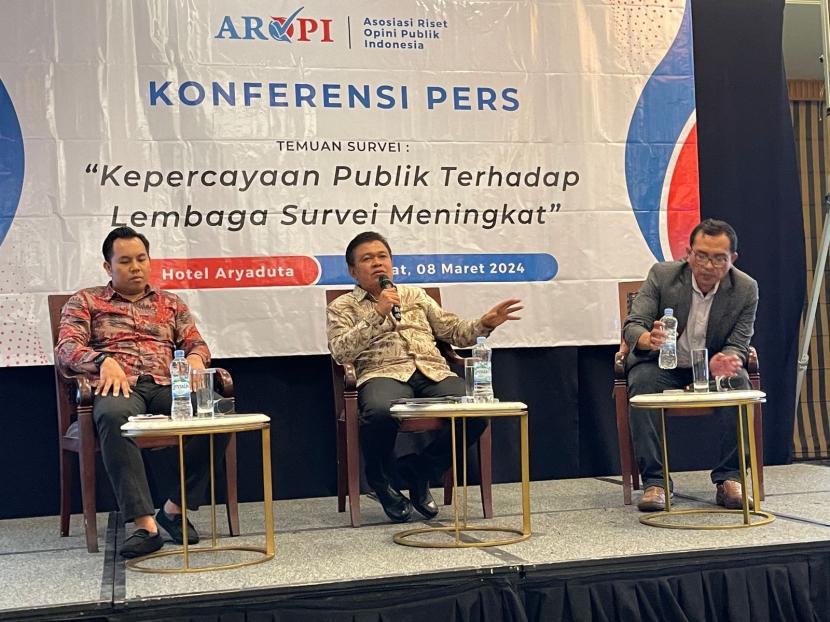REPUBLIKA.CO.ID, Jakarta--Chairman of the Association for Public Opinion Research (Aropi), Sunarto Ciptoharjo, said the majority of voters of the Prabowo Subianto-Gibran Rakabuming Raka pair, trust the pollsters, following the survey results and the quick count or quick count results. Cipto cited Aropi's survey, showing Prabowo-Gibran voters' confidence in pollsters at 87.0 percent and lack of trust at 10.4 percent.
While voters Anies Baswedan-Muhaimin Iskandar, only 59 percent trust the pollsters. The remaining 41.0 percent have little confidence in the pollsters. Then voters pair Ganjar Pranowo-Mahfud MD who pollsters believe is only 69.3 per cent.
The remaining 29.1 percent do not trust the pollsters. “The majority of voters trust pollsters. But the highest level of trust is in the voters of the Prabowo-Gibran couple,” Sunarto said, at Arya Duta Hotel, Jakarta, Friday (8/3/2024).
Overall, Sunarto said in this 2024 election, the level of public confidence in Pollsters both in conducting electability surveys and quick counts or quick counts has increased. Currently according to the Aropi survey, the public's level of trust in pollsters is 75.4 percent.
This figure Sunarto said increased compared to the 2019 election where public confidence in pollsters at the time was 67.8 percent. “This shows another interesting development of pollsters in Indonesia. Where many have taken surveys and quick counts as references,” said Sunarto, in Jakarta, Friday (8/3/2024).
Sunarto explained that this survey was conducted from January 26, 2024 to February 6, 2024. The survey was conducted using face-to-face interview data retrieval techniques and a margin of off error of 2.9 percent. The survey involved 1,200 respondents and a multistage random sampling method.
Sunarto added that trust in pollsters also depends on the level of education and economics of voters. According to him, why Anies-Muhaimin voters have a low level of trust in pollsters is due to the fact that previous surveys mention Amin voters have an economic level and higher secondary education.
“The level of education affects the criticality of the results released by the pollsters,” Sunarto said.


